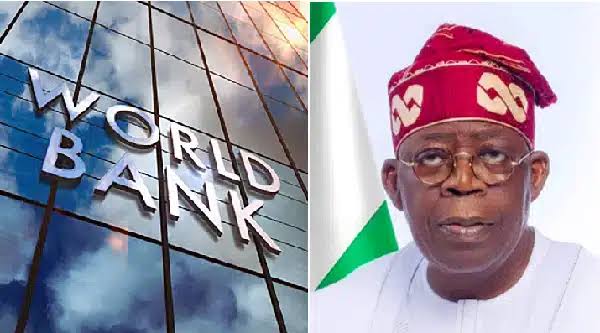Citizens express outrage over proposed 10-15 year timeline for economic recoveryExperts label World Bank’s advice as elitist and disconnected from realityCalls for immediate, people-centered reforms to alleviate poverty
On October 15, 2024, Nigerians reacted with disbelief and anger after World Bank Senior Vice President Indermit Gill suggested that President Bola Tinubu’s economic reforms would require an additional 10 to 15 years to yield positive results. This statement came during the Nigeria Economic Summit, where Gill emphasized the need for the government to remain committed to the difficult reforms, despite the immediate suffering faced by millions.
Gill pointed out that Nigeria’s oil wealth has historically benefited only the elite, leaving ordinary citizens to bear the brunt of economic mismanagement. His assertion that the country must endure a prolonged period of hardship to achieve transformation has been met with widespread condemnation from various sectors of Nigerian society.
Activists, academics, and everyday citizens have warned that following the World Bank’s advice could lead to social unrest. Many argue that the proposed timeline for recovery is not only unrealistic but also an affront to the dignity of Nigerians who are already struggling to meet basic needs.
Professor Moses Ochonu, a historian and academic, cautioned that the current situation could lead to a “showdown between suffering Nigerians and their unfeeling leaders.” He stressed that the 10-15 year timeline is “humanly impossible to bear,” warning that the government must change course to avoid a potential uprising.
ActionAid Nigeria’s Country Director, Andrew Mamedu, echoed these sentiments, describing the World Bank’s recommendations as “misguided and insulting.” He criticized the lack of a clear plan to support the populace amid ongoing economic challenges, emphasizing that Nigerians cannot be expected to endure further suffering in the name of long-term reforms.
The backlash against the World Bank’s advice has also been voiced by various activists and experts. Zik Gbemre, a Niger Delta activist, dismissed the recommendations as a conspiracy to keep Nigeria in perpetual economic bondage. Similarly, Professor Sebastian Uremadu of Michael Okpara University criticized the World Bank’s approach as hypocritical and anti-people, urging the government to reconsider its alignment with the institution.
While some individuals, like Elder Joseph Ambakederimo, argue in favor of the reforms, suggesting that they are necessary for long-term sustainability, the overwhelming consensus remains that immediate action is required to address the urgent needs of the Nigerian populace.
In light of this growing discontent, many Nigerians are calling on President Tinubu to reject the World Bank’s advice and focus on implementing policies that prioritize the welfare of the people. They demand a shift towards sustainable economic models that empower citizens rather than perpetuate their suffering.
As the nation grapples with these pressing issues, the question remains: will the government heed the voices of its citizens, or will it continue down a path that many believe could lead to further hardship and unrest?


